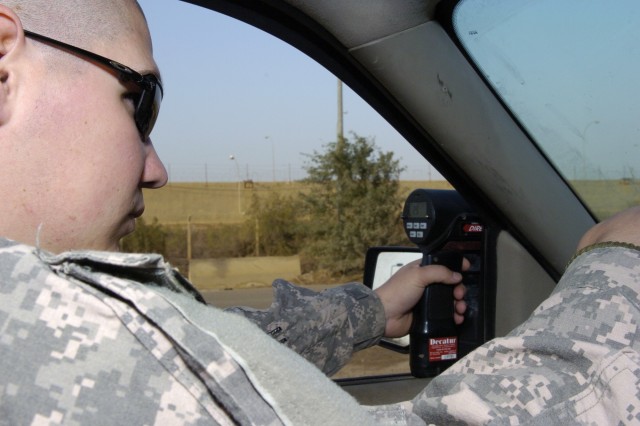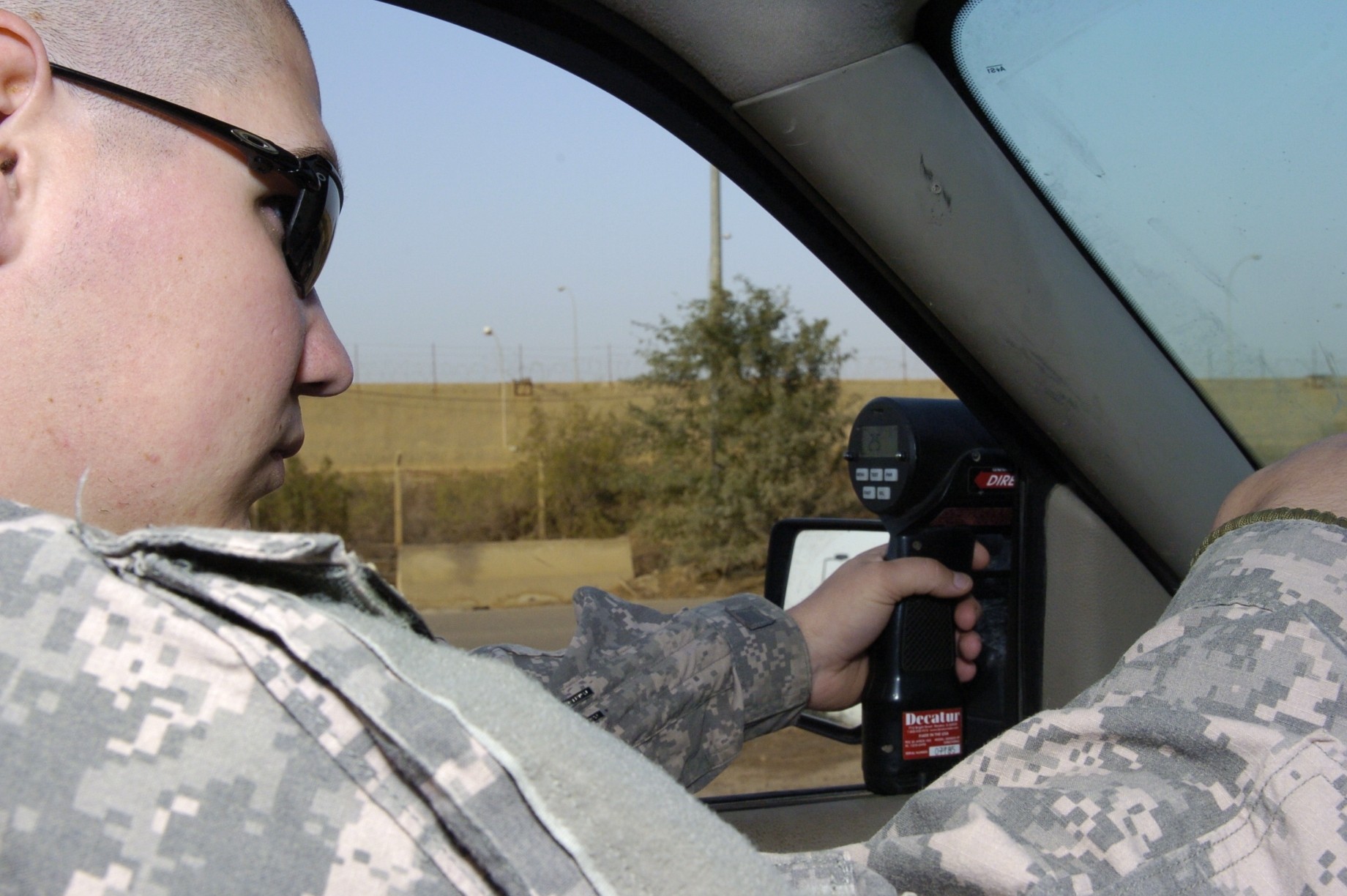Speeding in a vehicle greatly increases the risk of injury and death in an accident. Service members, civilians and local nationals are at times in a hurry to get to where they're going, ignoring speed limit signs and rushing to get to their destinations without concern for their safety or for the safety of others.
On Victory Base Complex, speeding is one of the main issues with drivers on the road. As a result, military police on base are ensuring that traffic laws are
being enforced.
"We deal with different types of drivers, nationalities and vehicles on the road," said Sgt. 1st Class
Jennifer Luhr, the traffic management noncommissioned officer-in-charge for the 192nd Military Police Detachment from Nebraska City, Neb. "We have a variety of traffic controls, such as stop signs, yield signs and speed limit signs that are set all across the base for the
safety of everyone."
The military police station on Camp Victory covers all of VBC, including Camps Slayer and Stryker and Sather Air Base.
Roads such as Red Fox and the Baghdad International Airport area are the biggest locations where speeding occurs. The distance between stop signs and the width of the roads are
contributing factors, said Luhr.
"These roads get busiest in the mornings when people go to work," said Spc. Brandon Waltemath, a military policeman with the 192nd MP Det. "It's been better in the last six months, but we still see some that don't know or are unaware of the speed limits on base."
The provost marshal's office uses a point system to track traffic violations and each specific offense accumulates a certain amount of points. For speeding, a driver receives two points for driving one to nine miles over the speed limit, four points for going 10 to 14 miles over and an automatic six points for anything over 15 miles over the limit.
If a driver accumulates six points within a 12-month period, he or she loses their driving privileges for a year, said Waltemath.
"Our whole goal is to keep everyone safe, we don't want any more traffic accidents while being here," said Spc. Robert Bell, a military policeman, also with the 192nd MP Det.
Bell said that the policemen give drivers plenty of warnings based on the terrain of the roads that are used. He added that problems such as potholes, gravel, dirt, weather and bad road conditions are the main reasons why there are specific speed limits.
Waltemath said all speed limits on base are maximum speed for every type of vehicle. The majority of speeding violations, he said, are due to drivers not paying attention to the speed limits. Speeders go from five to as much as 20 miles per hour over the designated speed
limit.
Patrol officers are on duty throughout the day and night and use either a radar speed gun or a stationary radar mounted in their vehicles to track driver's speed.
If drivers follow all appropriate street signs and do not rush where they are going, said Waltemath, road safety can improve not only for the base, but for the drivers and passengers as well.
It is important to stay vigilant and have situational awareness while driving to help reduce traffic violations to include speeding.
Losing the ability to drive will not only affect you, but also the mission readiness of your unit.


Social Sharing